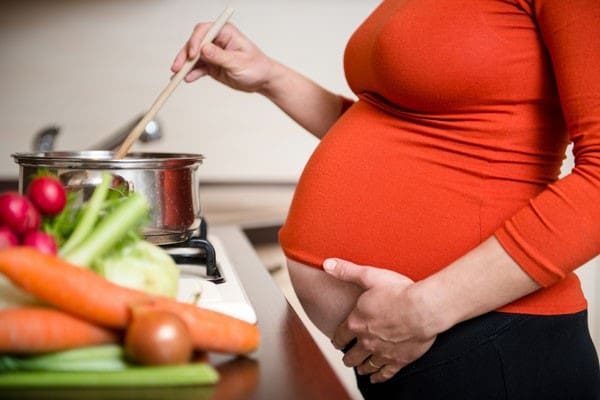If you’re expecting a baby during the first few months of the New Year, you’ll need to negotiate all the excitement and temptation of the New Year celebrations. But rather than look upon this as a challenge, you could view it as an opportunity to make some lifestyle choices for a healthier pregnancy. These New Year’s resolutions should leave you feeling healthier and more optimistic about the year ahead – and about the arrival of your baby.
- Eat a healthier diet
Try to eat at least five portions of fruit and vegetables every day, and switch from white carbohydrates to wholemeal varieties wherever possible. You should also ensure that you’re enjoying at least two servings of a healthy protein daily. Stick to white fish, lean meat and pulses if you can, but don’t deprive yourself of oily fish, fattier meats and milk completely.
Fish is filled with nutrients, yet it is usually very low in fat. You should aim to eat at least two portions of fish every week – one of which should be an oily fish such as salmon. Fish contains omega-3, which is very important for the development of a baby’s immune system.
- Take the supplements your body needs
While there are some very useful supplements available on prescription or over the counter, you should always take advice from a doctor before embarking on a course of minerals or vitamins. Your local Children’s Hospital will be assess your specific needs and recommended which supplements will deliver worthwhile benefits.
For instance, taking around 400 milligrams of folic acid during the first three months of your pregnancy can greatly reduce the risk of spine bifida in your child, as well as various other conditions related to the central nervous system. Vitamin D is very important for the development of a baby’s bones, and it can often be taken with folic acid in a single supplement.
If you don’t particularly like fish, you will get most of the associated benefits from taking fish oil supplements. However, make sure the supplements are taken from the body of the fish and not the liver. Fish liver contains high amounts of vitamin A, which aren’t recommended for pregnant mothers.

- Avoid potentially unsafe foods
You can use the beginning of a new year to set yourself some boundaries on what is safe to eat, as well as the food preparation practices that can reduce the risk of coming into contact with food-borne illnesses. There are several foods that may contain listeria, and they are probably best avoided altogether.
- Meat pates
- Unpasteurised milk
- Soft or mouldy cheeses, including brie and stilton
- Ready meals
You should also be aware of the types of foods that can harbour salmonella. Undercooked chicken and raw eggs post the biggest risk to a pregnant mother’s health during daily life, but good kitchen hygiene practices and cooking all your food thoroughly should reduce salmonella to levels that won’t pose a risk to your health.
You and your baby are also at risk from a virus known as toxoplasmosis – caused by a parasite. You can protect yourself from this particularly nasty virus by cooking meat thoroughly, washing vegetables and fruit to completely remove soil, and by taking extra hygiene precautions when cleaning cat litter trays or working with soil in the garden.
- Take regular exercise
Taking regular exercise can build your stamina in readiness for labour. It can also ward off a number of ailments, including weight gain, depression and anxiety. You don’t need to hit the running track once a day when January arrives, but taking regular, brisk walks could deliver some great health-related benefits. Other great ways to stay fit during pregnancy include taking Pilates or yoga lessons, and by attending antenatal classes at your local Maternity Hospital.
- Begin your pelvic floor exercises early
Too many women leave their pelvic floor exercises until after their birth, which can lead to a more severe case of stress incontinence. The pelvic muscles support the vagina, bladder and lower intestine, but they can be weakened by the growing weight of your baby and the various hormones that are released during pregnancy. Having a toned pelvic floor will not only reduce the risk of stress incontinence developing, it will help your labour to go more smoothly. A midwife or doctor at a leading Maternity Hospital will show you the best exercises for a healthier pregnancy.
Use the beginning of a new year to make some changes for a happier and healthier pregnancy. With the right advice – and some willpower – you can greatly improve your chance of having a smooth, problem-free labour.



Comments are closed.